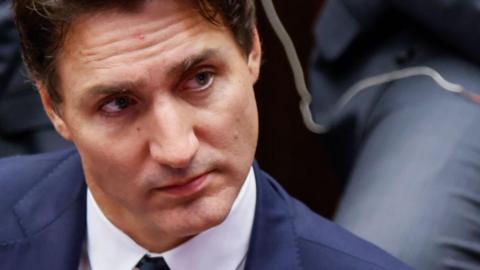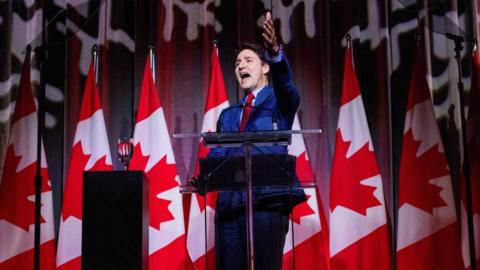It was one of the worst weeks of his political career, and Canadian Prime Minister Justin Trudeau was ringing in the season.
At the Liberal Party's annual holiday gathering, Trudeau put on his party face, despite being blindsided the day before by the snap resignation of one of his most trusted allies, Finance Minister Chrystia Freeland, just hours before she was due to deliver an economic statement in Parliament.
But even as some members of his own party were calling on him to leave, the prime minister struck a resolute, defiant tone as he addressed the party faithful in his dark blue suit and tie.
He alluded to his "difficult" week, comparing it to a family fight.
He discussed being "audacious" and "ambitious" in the face of adversity, and made pointed digs at his political rival, Pierre Poilievre, the leader of the opposition Conservative Party of Canada.
Pundits remarked afterwards that it sounded a lot like a campaign speech, and that despite the latest political turmoil, Trudeau appears to be digging in.
That stance did not change on Friday, even after the leader of the country's progressive New Democrat Party (NDP) Jagmeet Singh said he would introduce a motion to topple Trudeau's government in the new year. It was the support of the NDP that had kept the Liberals in power. An election now appears imminent.
Yet Trudeau has so far given no indication that he will resign soon, though he reportedly told fellow party members that he would take time over the winter holiday to think about what to do.
Political observers say Trudeau has often shown a streak of defiance when he is under pressure, something that has helped him weather a number of controversies in his nine years in power.
And he has often been underestimated, such as when he won a majority government in 2015 at the age of 44, despite being portrayed by his political opponents as something of a dilettante.
But as pressure mounts on him to resign, some of those same experts say he may need a new strategy.

